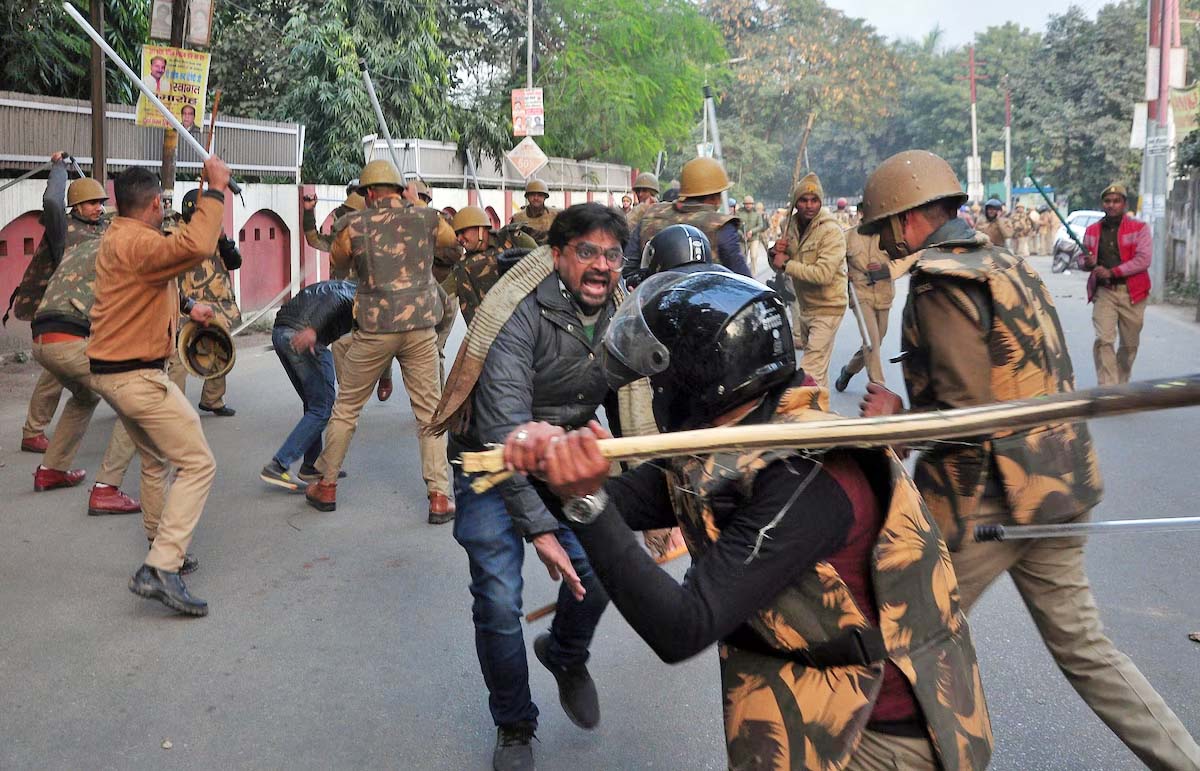
The authorities have launched a crackdown on Muslims, sparking allegations of arbitrariness. Police have allegedly raided Muslim homes and arrested dozens of youths in the late hours of the night even as bulldozers rolled into their areas in this violent-torn city of Uttar Pradesh. The intensified one-sided and prejudiced action against Muslims in the aftermath of the 26 September peaceful protests on the issue of ‘I Love Muhammad’ posters has drawn widespread criticism from human rights groups and social activists. According to official reports, police have so far arrested more than 83 individuals, most of them Muslims, and filed named FIRs against over 120 people.
The families of several arrested men allege that the police acted hastily and without conducting a fair investigation. “My husband was picked up without any warrant. We don’t even know what the charges are,” said Shabana Begum, wife of one of the detainees. “The police entered our home at night and took him away. They didn’t even allow us to speak to him.” Meanwhile, the Khwaja Garib Nawaz Welfare Association has filed a Public Interest Litigation (PIL) in the Allahabad High Court, questioning what it calls “one-sided and biased” action by the police and local administration.
The PIL demands an independent inquiry into the incident, claiming that the crackdown is targeting innocent Muslims under the pretext of maintaining law and order. The petition also seeks an immediate halt to bulldozer actions and property seizures, which have become a pattern in Uttar Pradesh’s handling of communal incidents.“We only want justice. The state must not punish people on the basis of their religion,” said Advocate Imran Ahmad, representing the association.
“The Constitution guarantees equality before the law. But what we are seeing in Bareilly is selective punishment.”Police sources claim Maulana Tauqeer Raza, a prominent Muslim cleric and political figure, orchestrated the violence. His close aides have been targeted, with raids conducted on their homes and properties. However, supporters of Maulana Raza argue that this is an attempt to silence Muslim leadership and suppress dissent. “Every time Muslims raise their voice, they are branded as instigators. This is not justice; it’s harassment,” said Naseer Khan, a local activist. Community leaders and rights groups have urged the government to conduct a neutral investigation into the violence and subsequent arrests.
They warn that biased actions could deepen distrust between communities and worsen communal harmony. “The rule of law must prevail, not the rule of fear,” said Maulana Ashraf Qasmi, a religious scholar from Bareilly. “Punishing entire families for alleged acts of a few individuals is against all principles of justice.” While state officials maintain that the police action is part of routine law enforcement, several social organisations have questioned the timing, scale, and selectivity of the crackdown.





